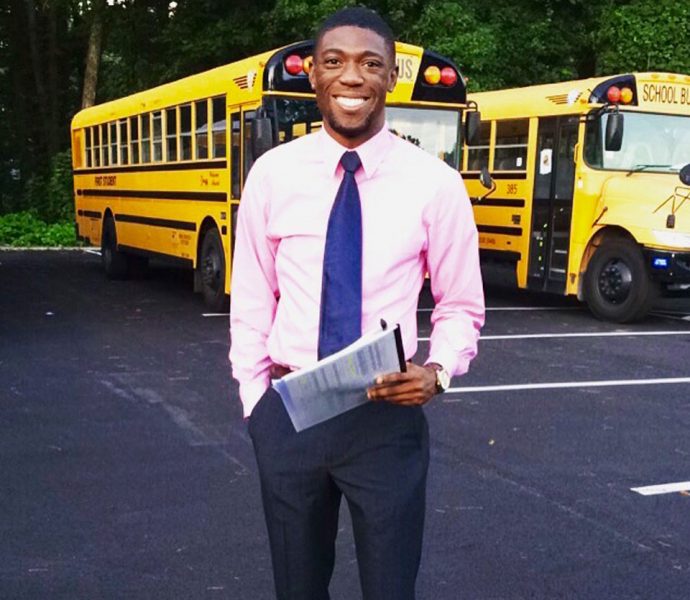Charles King

In America today, we are confronted with an unfortunate reality; a reality where our black brothers and sisters fall victim to others’ beliefs and stereotypes. As educators, we deal with that truth every day. Will one of my students be injured because of someone else’s stereotype? Will one of my students be incarcerated? Will one of my students be the next hashtag? When I walk into school and see my 92 students accounted for, it’s…it’s almost like a sigh of relief.
I say all this because the work we do is critical. We are able to teach our students not only about subjects like English and Language Arts, but also about the world, about themselves, about how they are powerful beyond measure—that they are powerful beyond their own belief. Too often we fail to recognize that power even within ourselves.
America today is congested with so many opposing factors. Society, families, and friends push and pull us, telling us who we are, and who we should become. They try to mold us and build us, but the product they create is inauthentic. They have molded a version of us that is, in reality, just a vision of themselves. As teachers, we have the unique opportunity to help our kids understand that no one has a final say in their life. That only they are in charge of their identity. And that everyone must live their own life.
If I can impact 92 students every year—let’s do the math—that means that, in four years, there will be 368 individuals who I can say have been exposed to love. There will be 368 individuals who have been exposed to knowledge of self. Of course, I know that the lessons learned here will not lead to a final forming of character—there’s no such thing as a final form of character! But at least, I will be confident in knowing that our students have had that exposure.
And I will know that the students who pass through the doors of my classroom will have received the tools they need to progress and advance their personal identity as they continue throughout their lives. Just like I received—when I attended KIPP—as a student more than a decade ago.
